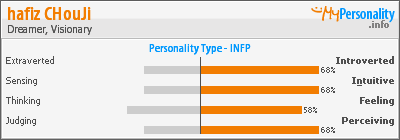And we discussed about what we can do to intervene and prevent youth suicide. He mentioned about Cognitive Behavioral Therapy, the use of drugs such as antidepressant and combination of both. He also talked about a new intervention method called Problem-Solving Therapy which is still in experimental stage. But I don't fancy any of these methods. I was more attracted to how and what can we do to prevent suicide when people at risk of committing suicide show the "warning signs". Because the method reminds me of a story I read some times ago. Here goes the story:
Mark was walking home from school one day when he noticed the boy ahead of him had tripped and dropped all of the books he was carrying, along with two sweaters, a baseball bat, a glove and a small tape recorder.
Mark knelt down and helped the boy pick up the scattered articles. Since they were going the same way, he helped to carry part of the burden.
As they walked, Mark discovered the boy's name was Bill, that he loved video games, baseball and history, and that he was having lots of trouble with his other subjects, and that he had just broken up with his girlfriend.
They arrived at Bill's home first and Mark was invited in for a Coke and to watch some television. The afternoon passed pleasantly with a few laughs and some shared small talk, then Mark went home.
They continued to see each other around school, had lunch together once or twice, and then both graduated from junior high school. They ended up in the same high school where they had brief contacts over the years.
Finally the long-awaited senior year came and three weeks before graduation, Bill asked Mark if they could talk.
Bill reminded him of the day years ago when they had first met. "Did you ever wonder why I was carrying so many things home that day?" asked Bill.
"You see, I cleaned out my locker because I didn't want to leave a mess for anyone else. I had stored away some of my mother's sleeping pills and I was going home to commit suicide. But after we spent some time together talking and laughing, I realized that if I had killed myself, I would have missed that time and so many others that might follow. So you see, Mark, when you picked up those books that day, you did a lot more, you saved my life.
Yes, Chris Bowden talked about therapeutic alliances and instilling hope. Yes, it's about being there for the distressed person. As Chris said, we don't need to do anything for them (people at risk of committing suicide); it is simply by being there - to listen to what they want and have to say without agreeing or rejecting it - it helps.
In my opinion, therapeutic alliances and instilling hope do helps. Therapeutic alliance here can be understood as a therapy or treatment simply by connecting and allying oneself to a distressed person.This then followed by giving hope and support they need. Why I think it works is because distressed person often see themselves as a failure with severed connection to the world. They think they are not listened by anyone making them believe that they are isolated and of no value to the world. By being there for them to listen to the many things they want to say, we are actually reaching out to them thus showing a way out of the cloggy cloud inside their head. It is this kind of cloggy cloud that blocks their ability to think rationally and see the positive options to solving their problems.
We don't agree with their rantings. It reinforces their belief about how pathetic their life is. We don't argue with them. They can't listen and think rationally. We don't reject their rantings. It causes them to feel more distressed and want to close their heart and shut off. We listen to them. Attentively listen to their rants. Give them unconditional acceptance. That is the only thing they want and the least we can do.
It is because, by being there for distressed people and accepting them unconditionally we actually recognise them and add a value to their life. We give them hope and reason to live. As Bill said to Mark at the end of the story: When you picked up those books that day, you did a lot more, you saved my life.





